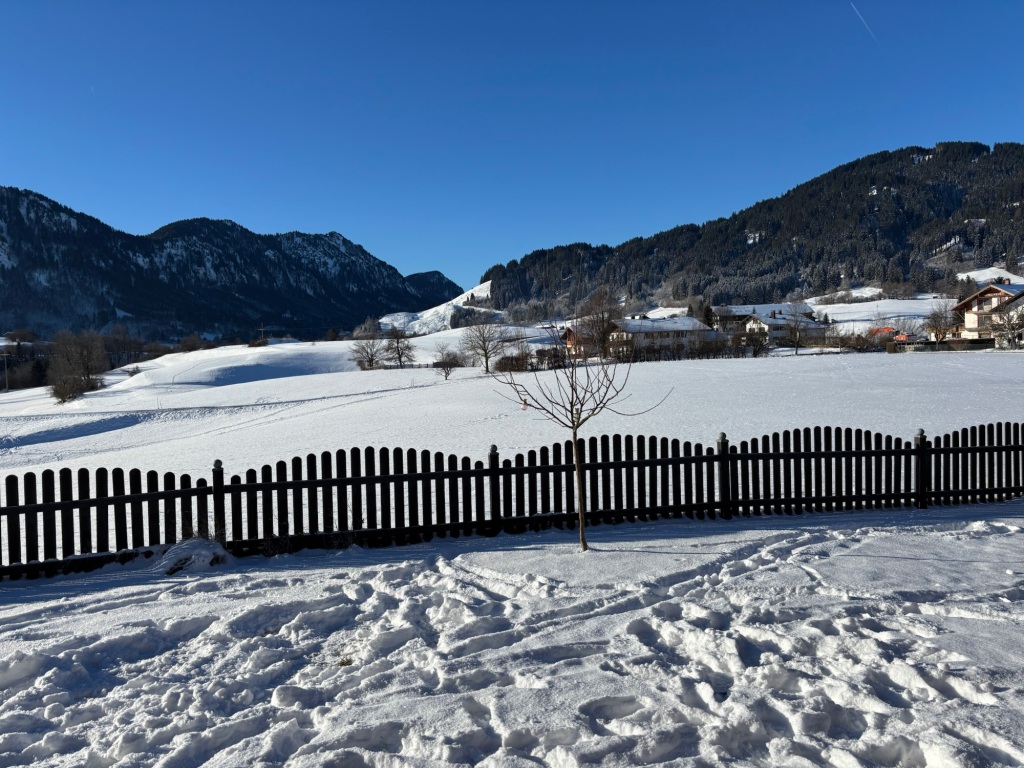
This is the view from our little house in Southern Germany. A magical venue for a family Christmas with my international family. I can’t think of a more inspiring panorama as we head into the New Year.
2025 here we come.
Just a few miles from here is the Castle of Neuschwanstein – a fairytale castle built in the 1860s by King Ludwig of Bavaria. The castle is said to be the inspiration for Walt Disney’s Cinderella castle. It towers above green fields and a cute little medieval village. In reality the castle was a retreat for a very wealthy and probably lonely man. He lived alone surrounded by paintings of medieval myths – especially the tales of King Arthur and the Holy Grail.
Ludwig loved Wagner and many of his rooms are decorated with tales from Wagnerian operas. Heavy stuff! Tristan and Isolde, Lancelot and Guinevere, proper knights of the Round Table. Ludwig didn’t like seeing the servants, so they scuttled about in hidden ‘staff only’ corridors, so as not to offend their royal master. When Ludwig’s spending got out of control the Bavarian Court had him medically condemned as ‘insane’. A few months later he and his psychiatrist were found dead, apparently drowned in Lake Starnberg, south of Munich. Accidental death or not? Nobody knows.
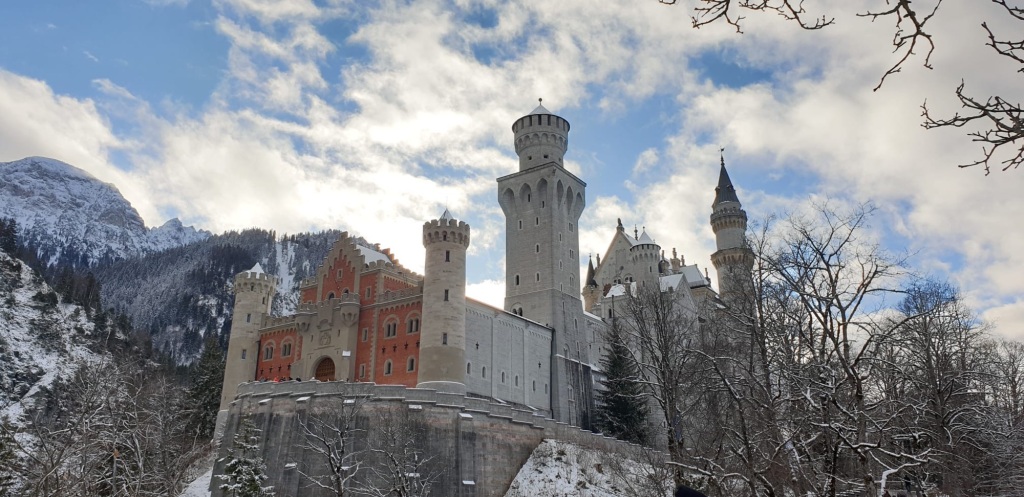
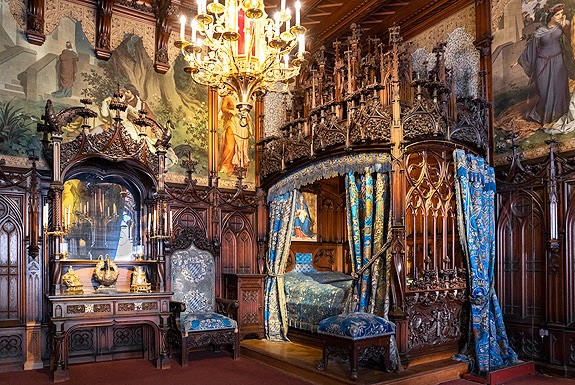
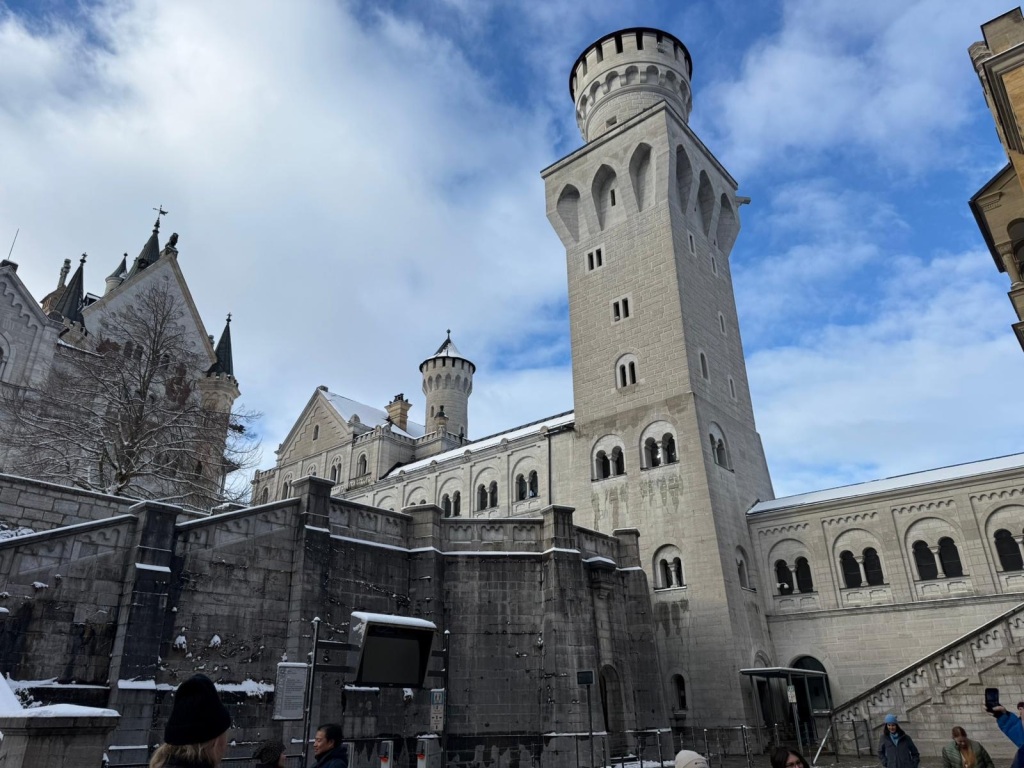
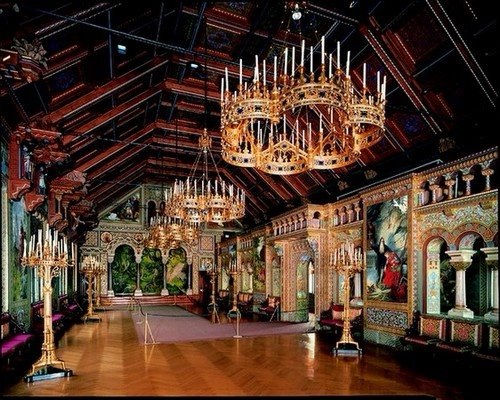
We are in the Allgau (pronounced Al-goy) in the foothills of the Alps. The border with Austria is just a mile away. This area is sometimes known as the Schwabian Alps or the Schwabian Jura (a reference to the nearby French Jura Mountains to the west). In the next valley to us is the tiny hamlet of Wertach, birthplace of the writer and philosopher WG Sebald. Sebald was a writer, thinker and academic. He spent his childhood in Germany and then moved to Switzerland and England to complete his studies. He lived in Manchester and then Norwich, teaching at both universities. He ended up as the Professor of German Literature at the University of East Anglia. He was largely unknown outside academic circles until, in the 1990s, his book ‘The Emigrants’ was translated into English to great critical acclaim.
Reading Sebald made me want to visit the Allgau. His descriptions of the villages, remote both culturally and geographically fired my enthusiasm to discover this little-known part of Germany. The Allgau is technically Bavaria and yet it is 3 hours from Munich. There’s a feeling of a road to nowhere. Numerous dead-end valleys wedge themselves, challengingly, into the northern flanks of the Austrian Alps. In the winter there’s snowfall and freezing temperatures. The villages are picturesque and self-contained.
When ‘The Emigrants’ was translated into English it opened up a new source of literary meandering from a German point of view, and most importantly from a German post-war point of view. Reviewers fell over themselves to comment on, explain and elucidate Sebald’s monologues. For me his unique talent was the ability to observe the lives of ordinary people (real or imagined) and to take the reader on a journey through those people’s lives. The Guardian obituary of Sebald written in December, 2001 describes him as a German writer ‘shaped by the forgetfulness of his fellow countrymen after the Second World War’.
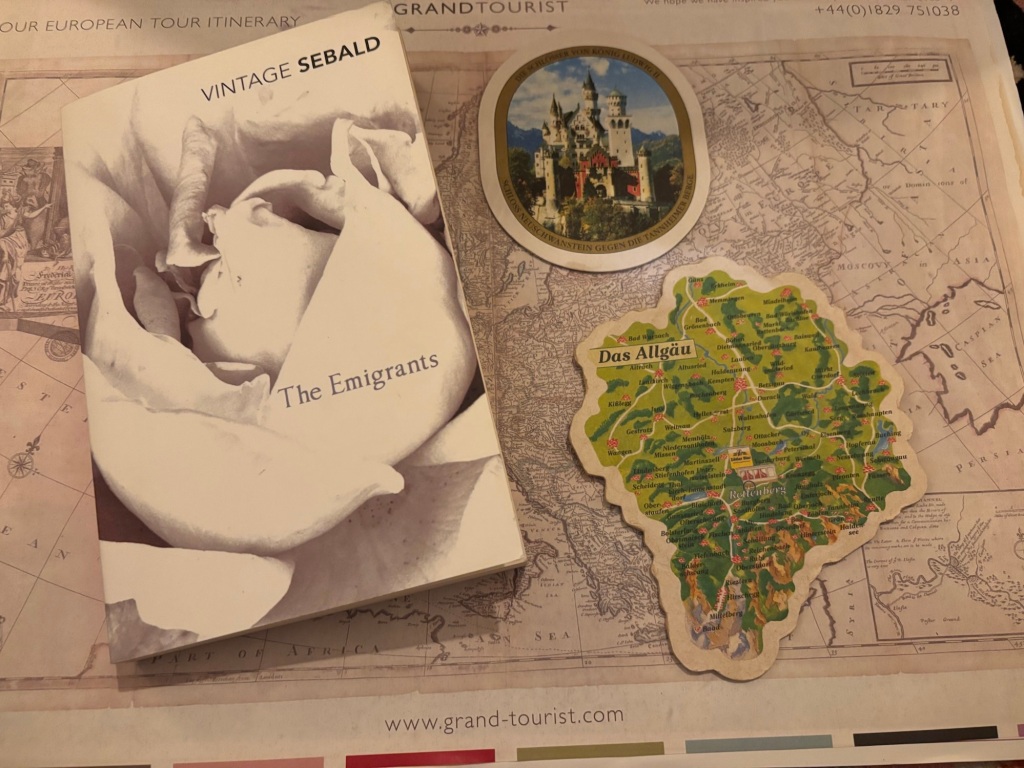
The concept of forgetting is an interesting one. JG Ballard made a similar observation when he was being asked about his autobiography ‘The Miracle Years; From Shanghai to Shepperton’ completed in 2009 just before his death. He replied that he probably should have written his autobiography sooner, however it had taken him 25 years to forget and 25 years to remember. I’m paraphrasing here, but the point is a good one. How do we, as humans, process events in our lives especially traumatic ones and how, if ever, do we come to terms with these experiences. I should explain here that JG Ballard was imprisoned as a child in a Japanese Prisoner of War camp just outside Shanghai. He recorded these events in the novel ‘Empire of the Sun’ which was made into a film directed by Steven Spielberg in 1987.
Warming to my theme here of the past and forgetting I’d like to include another fun fact about the Allgau region at this point. Less than five minutes from our little house there’s a barn, an ordinary looking barn with a ramp. According to the local tourist office this is the barn that Steve McQueen drove his motor bike out of, at speed, obviously, in the closing minutes of the ‘Great Escape’ or as it is called in German ‘Die große Flucht’.
So interestingly, in these closing days of 2024 we’ve got poor old Ludwig in his castle, WG Sebald reflecting on life in rural Germany, JG Ballard reminiscing and Steve McQueen being an action hero. Which one shall I emulate in 2025. Or should I just tread my own furrow? After all in the words of Robert Macfarlane ‘I’m in awe of expertise’ that’s definitely true and it’s a sentiment I wholeheartedly support.
From me to you as we tread the liminal boards between 2024 and 2025 I’m committing here to a year of writing and thinking and pushing the boundaries. I hope, with honesty and respect, that some of my musings might resonate with those that read them and perhaps, just perhaps, might make a small difference to someone else’s thoughts and possibly brighten that person’s day.
Happy New Year to you and wishing you all good thoughts and positivity in 2025.
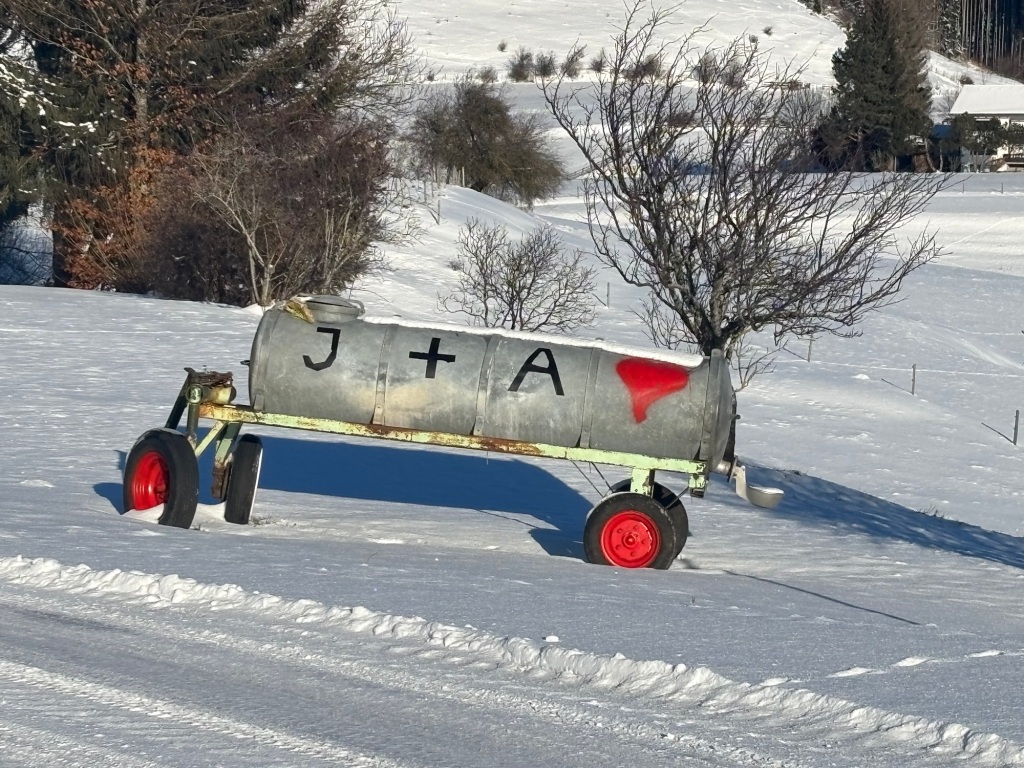
December 2024
